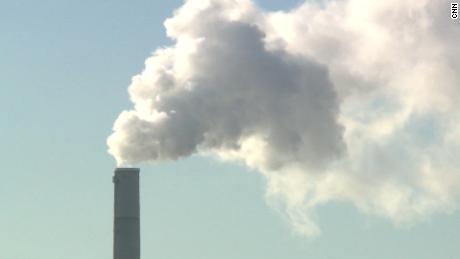(CNN)A government report on the human impact of climate change that was long scheduled for release in December is now scheduled for release on Friday -- prompting speculation that it is being buried on a day when few people will be paying attention.
It's unclear why the date was moved up. The National Oceanic and Atmospheric Administration announced the Friday afternoon release on Wednesday -- the eve of the Thanksgiving holiday.
Among journalists and public relations experts, releasing information on Friday afternoon -- not to mention Black Friday -- or around a holiday is widely seen as a way to cushion the impact of critical news. The idea is that fewer people pay attention to news releases on the weekend, and by Monday, the news is old.
Spokespeople for NOAA and the Commerce Department did not respond to requests for comment on Wednesday afternoon.
The report is the second volume of the Fourth National Climate Assessment. The first volume, released last November, focused on climate science and concluded there is "no convincing alternative explanation" for the changing climate other than "human activities, especially emissions of greenhouse gases."
The second installment of the report will "analyze the impacts of global change on topics and regions of the United States," according to the government website. A person familiar with the report told CNN the topics include the cost of climate change and impacts on health, transportation infrastructure and water. The report includes granular details and is several hundred pages long, the source said.
Even after the Black Friday release was announced, the report's website said the "expected final publication" for the report is "December 2018."
The release comes as the administration grapples with a catastrophic consequence of the changing climate: increased severity of natural disasters and wildfires. Interior Secretary Ryan Zinke acknowledged this week that rising temperatures have led to a longer and more intense wildfire season, but he did not specifically address climate change.
As millions of Americans brace for their coldest Thanksgiving in more than a century, the President tweeted on Wednesday night, "Brutal and Extended Cold Blast could shatter ALL RECORDS - Whatever happened to Global Warming?"
But climate change is best exemplified by the consistent rise in temperatures year after year, not extreme weather over a day, a month or even a year. The warming of the planet is easiest to observe by measuring global temperatures. NOAA released a report in April that showed the Earth's temperature has been above average for 400 consecutive months -- more than 33 years.
"It's mainly due to anthropogenic (human-caused) warming," NOAA climatologist Ahira Sanchez told CNN when the report was released. "Climate change is real, and we will continue to see global temperatures increase in the future."






